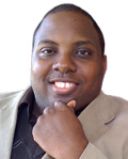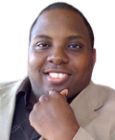Play
Deliberate Practice – Pt. 1: Knowing exactly what you want
Deliberate Practice – Pt. 1: Knowing exactly what you want!
Posted July 13, 2010

Daniel Coyle, discussed the idea of "deliberate practice" as a way of achieving excellence in his book, The Talent Code. Yet, his main focus was on the role of myelin in increasing the speed of transmission in neuronal networks to improve performance (read past discussion here). Myelin (glial cells) which form protective sheaths around nerve fibers, allows impulses to travel much more quickly and increases your ability to carry out certain tasks.
Malcolm Gladwell touched on the idea of deliberate practice in Outliers but focused on the oft misunderstood theory (and now repeated by other writers to the point of inducing misery in their readers) of 10,000 hours of practice to excellence.
However, it was Geoff Colvin in his book, Talent is Overrated, that gave the idea of deliberate practice its just due. His approach to deliberate practice is a good start to understanding how you can intentionally set yourself apart in your field or area you desire to develop expertise.
This essay will be a four part series on deliberate practice (DP) using the ideas of Colvin, the other authors listed above and academics who have studied its use. We'll start with the idea of knowing precisely what you want.
Know exactly what you want
When people develop the desire to excel, the natural assumption is that devoting a huge amount of time and effort to their goal is the way to achieve excellence. Yet, how many of us have devoted a lot of time and effort to something and would be considered "mediocre" at best (Colvin, 2008)?
For example, there are adult recreational league players who have spent 3-5 days a week, hours a day and multiple years playing their respective sports. Yet many would have difficulty making a 5A high school tennis, basketball or golf team (and not because it would be unethical and illegal).
The difficulty would arise because many people take the "Jack of all trades" approach to training, not only in sports but in their jobs, careers and other extracurricular pursuits. This approach can ensure that you don't have any ‘holes' in your ‘game' but also ensures that you don't do anything particularly well either. As a person who wants to use deliberate practice you have to identify what areas you need to concentrate on in order to excel.
One area I have used deliberate practice in is learning to play the guitar. My wife and I bought guitars about a year ago and immediately began taking lessons. Our instructor, who was a very nice guy, taught us using the tablature method and would print out 5 different songs each week for us to practice. We'd practice these songs religiously (most of the time) and then go back and play them for him and receive 5 more songs like clockwork every two weeks. Yet, at the end of four months, when people asked us to play for them we would have to run and grab our notebooks full of songs. Further, we hadn't learned any chords in that time.
As we reasoned that this scenario could go on forever without us learning how to truly play we decided to end our relationship with our instructor. I decided to take a different approach. I had to decide what I really wanted to accomplish with my guitar. While pondering what I wanted to do I remembered my piano playing days. There is one song I can ‘play the hell out of'' and that's it. I had to learn it for a recital in the sixth grade. Since I didn't want to make any mistakes I practiced it hundreds of times. To this day when playing that song to non-pianists I bask in the impressed looks I receive from them after I finish. I decided that I wanted to use the same approach, slightly modified, to play the guitar.
My goal in playing the guitar would be to learn how to play one song at a time and without the aid of a music sheet. I picked Old Susannah and practiced it religiously until I could play it without making an error. When a certain bar gave me trouble I didn't move forward until I ‘mastered' it. It took me two months (15 minutes a day/every other day) before I felt I had it and finally knew how to play my first song on the guitar using memory. Although my marriage suffered in ways that it can't recover by my playing Old Susannah so much, I was on my way. I could pick up a guitar and play without a music sheet and I knew that not everyone could do that. The next song Ode to Joy took only a month to memorize and although each new song is challenging my speed in learning has increased.
Lesson Learned
My original approach in simply wanting to learn how to play the guitar led me to taking lessons without a direction in mind and to an instructor who didn't mind leading me there. By being as specific as possible on what I wanted to accomplish and choosing an achievable, albeit challenging outcome, I was able to move forward substantially. Knowing exactly what you want to achieve is the first rule of deliberate practice.
I used DP for playing an instrument but it can be applied in any arena. Deliberate practice aided me considerably with my guitar and in other ways as well and I believe it can help you. In the next installment, I want to discuss another three ways you can use DP in your life.
Bakari Akil II, Ph.D. is the author of Pop Psychology - The Psychology of Culture and Everyday Life! You can also check out his page on Twitter.


